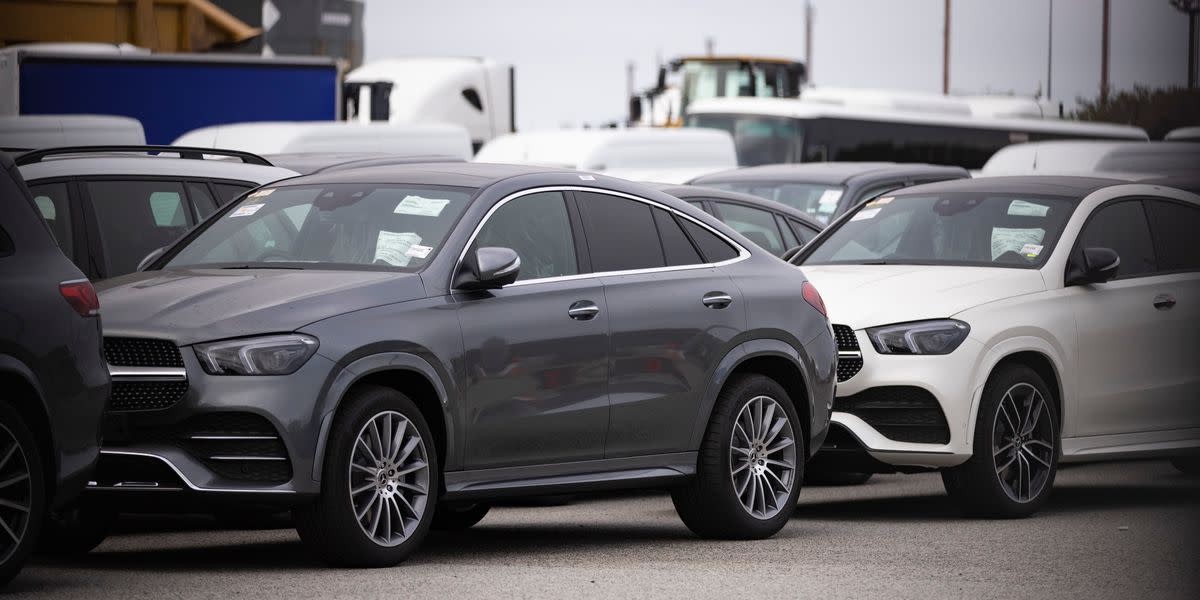At the beginning of June, the European Parliament is deciding on several texts relating to ecology and climate issues. With in particular the idea of banning the sale of cars emitting CO2 from 2035 (illustration photo taken in November 2021 in Perth, Australia).
Will we still be able to buy a petrol or diesel car in 15 years in a European Union country? This question, MEPs must answer in the coming days, while the European Parliament is voting on Tuesday 7 and Wednesday 8 June in Strasbourg on eight texts making up the “climate package” (or “Green Deal” in English).
And that he could therefore set a thirteen-year deadline for “a radical change in the automotive industry”, as presented by Pascal Canfin (ex-EELV who joined Macronie during the last European elections). Chairman of the Parliament’s Committee on the Environment, Public Health and Food Safety, he is increasing his media outings these days to present the project.
The key idea of the project is therefore to prohibit the sale of cars emitting CO2 from 2035, which would primarily target thermal cars, running on petrol or diesel. “We are only talking about new cars put up for sale here, he specifies in particular to our colleagues from the Parisian. We will still have the right to drive thermal vehicles purchased before and the second-hand market for gasoline and diesel will continue.
Opposition from lobbies and the European right
Faced with this proposal, a whole part of the European Parliament (with a majority on the right), it defends a more flexible compromise with the automotive industry which would set a threshold of 90% of new cars sold which would be zero emissions. And this without a deadline for the sale of polluting vehicles. Clearly, it would be possible for decades to continue selling petrol or diesel cars.
“It would be incompatible with the objective of carbon neutrality in 2050 set by the Paris Agreement. The vote will be very tight”, insists Pascal Canfin. And to add on franceinfo that European cars driving on average for 15 years, without a total interruption of the sale of cars emitting CO2 in 2035, it will be impossible to comply with the terms of the Paris Agreement on climate.
The challenge in doing so will be to convince the European Parliament that the industry which employs the most people in Europe is capable of transforming itself in such a short time. “This end of the sale of non-zero emission cars, we associate it with a just transition fund for the employees of the sector who are concerned”, he specifies in a video posted online by the Renaissance group, which brings together the liberal allies of Emmanuel Macron on a continental scale.
It remains to be seen whether these compensations will be more effective than the work of the lobbies, which are at work with all their weight in this file, to hear Pascal Canfin. On franceinfo, he explains that “this vote is the last chance for anti-climate industrialists to make their voices heard. This is manifested by hundreds of proposed amendments, arguments that come to deconstruct the arguments for the climate.
Among the other main measures that will be discussed over the next few days in Strasbourg, we also find the desire to make the aviation and maritime goods transport sectors pay for their carbon emissions at EU borders. A measure which will certainly be approved by the hemicycle. Which makes Pascal Canfin say that this week’s negotiations will lead to what is “probably one of the most important votes of the term of office”. And to promise: “We will meet climate ambition.”

